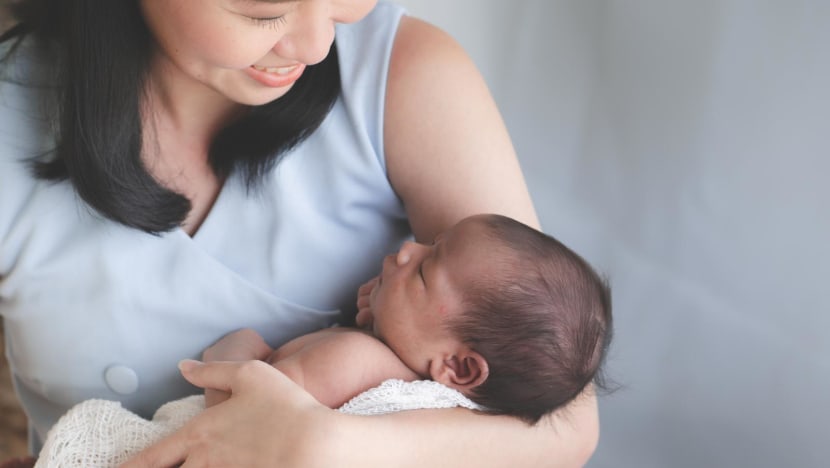Commentary: Superstitions on Tiger or Dragon year babies won’t disappear, but they will evolve
There was a dip in fertility rate among the Chinese last year, possibly due to 2022 being the Year of the Tiger. With the more auspicious Year of the Dragon coming next year, there’s reason to avoid the hype, says the Institute of Policy Studies’ Tan Poh Lin.

SINGAPORE: The view that our personal attributes, strengths and luck are related in some way to the positioning of the constellations at the time of birth is an illogical one. And one of the more curious ways in which modern society is changing is that the astrological services industry is booming, even as more people are turning away from religion.
Some may prefer the Greek zodiac, which loosely follows the month of birth. Others may be more familiar with the 12 animals of the Chinese zodiac (sheng xiao) based on year of birth, with horoscope predictions an inevitable fixture of Chinese New Year jollities.
For some in Singapore, zodiac lore has enough persuasive power to influence the timing of childbearing, even in this day and age.
According to the government’s annual Population in Brief report released on Friday (Sep 29), the total fertility rate (TFR) for the Chinese population plummeted to 0.87 in 2022, the Year of the Tiger, compared to 1.18 in 2012, the Year of the Dragon.
My colleagues and I at the National University of Singapore estimate that Singaporean Chinese births increase by 9.3 per cent in Dragon years but fall by 7.8 per cent in Tiger years, relative to non-Chinese births, between 1960 and 2007.
The overall TFR hit a historic low of 1.04 in 2022, which likely also reflects marriages delayed by the pandemic and the general downtrend over the years.
PREFERENCE FOR DRAGON BABIES A MODERN PHENOMENON
The preference for Dragon babies and aversion towards Tiger babies among Chinese parents correspond to the associations of the former with good fortune, longevity and nobility, and the latter with rebelliousness and ferocity, which are considered undesirable traits particularly in women. For similar reasons, Japanese and Korean parents avoid childbearing in the years of the Fire Horse and Metal Horse, respectively.
In fact, zodiac birth timing is a relatively modern phenomenon, with a baby boom in 1976 (a Dragon year) among Chinese in Singapore, Malaysia, Taiwan and other societies with large Chinese subpopulations. One research study attributed this to overseas Chinese doubling down on their cultural heritage, in response to the repudiation and condemnation of traditional practices in China during the Cultural Revolution.
The actual tradition of Chinese astrology, based on so-called ba zi (or eight characters), places far more weight on the day and hour than on year of birth. These factors are more difficult to control relative to aiming for the opportune year of birth, giving rise to a modern superstitious practice.
EVOLVING ROLE OF MYTHS
With more Singaporean households using English as the household lingua franca, philosophical assumptions and stances embedded in other languages may decline in salience among younger cohorts.
Future generations may be less likely to automatically associate Tiger years with temperamental wives; even if they do, attitudes may be more benign. With singlehood and childlessness on the rise, parents may place less importance on daughters’ future marital prospects, and even come to view aggressiveness as auguring well for success in the labour market.
As guardians of family traditions, elderly grandparents may need more convincing. But the days when family elders get to decide such matters may have long gone.
The ages at marriage and childbearing are also creeping up, with the median age of citizen mothers at first birth at 31.3 years in 2022. Couples may be more focused on having their first or second births before age 35, widely used as a “cutoff” age to consider fertility and pregnancy issues, giving them less bandwidth to factor in other considerations such as zodiac signs.
Still, this doesn’t mean that we should expect the phenomenon to simply fade away. As the rising popularity of astrological services and access to personalised consultations indicate, superstitious beliefs will likely play an evolving role, rather than disappear altogether.
The cultural pull of tradition can have a psychological impact that even sceptics may find difficult to resist. Amid economic gloom and global uncertainty, families may respond enthusiastically to the sense of optimism offered by a Dragon year.
Myths can also play a facilitating role, by offering one partner the opportunity to proposition the other about having a child, even if neither fully buys into the superstition. Others may come to use zodiac birth timing as a signal of parental love, akin to the common ritual of placing blessings through the naming of children.
COSMIC IRONY OF ZODIAC BIRTH TIMING
With the next Dragon year just around the corner, is there potential to leverage the hype to hopefully bring about a bumper crop of babies in 2024?
There is no question that Singapore would benefit from a higher TFR, but studies suggest that zodiac preferences primarily influence timing without significantly increasing lifetime number of children, which is what matters most for maintaining our core population.
More importantly, research strongly suggests that it is actually a bad idea to have births bunched up in a single year. A larger birth cohort creates additional competition and stress for parents - such as for Primary 1 registration - administrative headaches for the nation, as well as negative outcomes for the children themselves.
The Easterlin hypothesis, proposed by economist Richard Easterlin in the 1960s and 1970s, posits that the economic and social well-being of a cohort are tied to its relative size, and predicts that members of larger cohorts suffer from poorer life prospects due to increased competition.
Consistent with the hypothesis, our research found that Singaporean Chinese born in the Year of the Dragon earn lower income than other Chinese birth cohorts, relative to the difference among non-Chinese. Other population groups who enter the job market at the same time as Dragons, including non-Chinese born in the Year of the Dragon and women born in the Year of the Horse two years younger due to National Service, also appear to suffer negative wage externalities.
By contrast, we find no evidence of worse outcomes among the less astrologically desirable Tiger children.
The irony of zodiac birth timing is therefore that although there is no scientific evidence for superstitious premises, the most rational response is not to ignore it, but to actively avoid the hype.
Tan Poh Lin is a Senior Research Fellow at the Institute of Policy Studies, Lee Kuan Yew School of Public Policy, National University of Singapore.


















